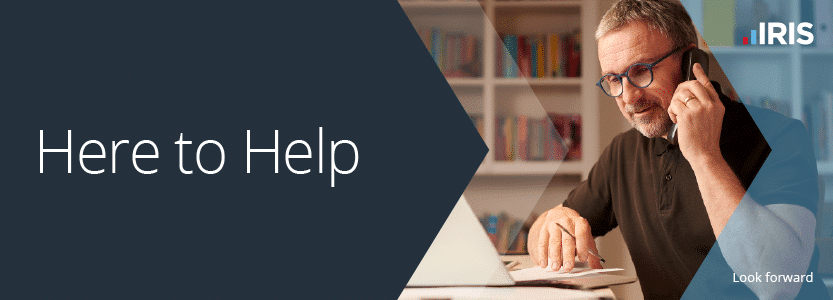Covid-19: Stay one step ahead of clients to help on self-employed grant
Updated 14th June 2023 | 3 min read Published 2nd April 2020

By Jenny Strudwick, Senior Product Manager
The accountant’s role as a trusted adviser to small business owners and the self-employed has just become even more important.
That’s thanks to the momentous package of support revealed for the self-employed to help them through the Coronavirus pandemic.
How can accountants be one step ahead?
The self-employed, subject to eligibility, stand to receive 80% of the average profits from their last three years of tax returns.
The new coronavirus (COVID-19) Self-employment Income Support Scheme offers a taxable grant, up to a maximum of £2,500 per month for three months.
Already in the few days since it was announced, IRIS customers have asked us how to data mine and report on the average profits for self-employed clients over the last three years, through our software.
The good news is you can do it in IRIS Personal Tax already. To ensure you are one step ahead of clients, and to bring greater certainty in these times of uncertainty, we’ve produced a quick guide on how to do this.
This shows how to use the software to determine which clients are likely to be eligible and should allow accountants to produce one uniform report.
How to help advise clients
You’ve probably seen there are many conditions on the grant (detailed below). HMRC will be contacting all individuals it deems to be eligible directly – rather than through their accountant.
Therefore, it is even more vital for accountants to understand which of their clients are likely to be contacted, and the impact, so that they can advise them accordingly.
You can then be one step ahead and inform your clients of what they should be entitled to claim. Then you can let them know what the process will be for claiming before they are contacted by HMRC.
Who are the Government supporting?
The grant is open to those who:
- have lost trading profits due to COVID-19
- have more than half of their income from Self-employment
- are self-employed (including those in partnerships) with profits up to £50k
- are already in self-employment, with a Tax Return submitted for 2018-19
- were trading in 2019-20
- intend to continue trading in 2020-21
How will it work?
HMRC will use data on 2018-19 returns already submitted to identify those eligible and will consider any late returns as long as they are filed before 23 April 2020.
Officials will contact those they believe are eligible and then these individuals will be able to submit a claim online. The grant will be paid directly into the individual’s bank account.
If trading only commenced between 2017 and 2020 (so there are not three full years for averaging) HMRC will only use the years that a Self-Assessment Tax Return was submitted. Averaging across three years allows for dips and anomalies, so that the grant is a fairer representation of what an individual earns through self-employment.
What next?
As with all new schemes, it’s likely there will be more news to emerge in coming weeks, especially with the situation changing so rapidly. IRIS will be keeping a close eye on developments and letting customers know more as things change.
In the meantime, we’d encourage you to begin using our quick guide. No doubt, you will have plenty of enquiries from your clients.
If you need further support, our team is here to help. Call 0344 815 5656 or fill out the form at the bottom of this page.
For more assistance on business continuity during this crisis, including remote working and outsourcing, please visit our hub here.
